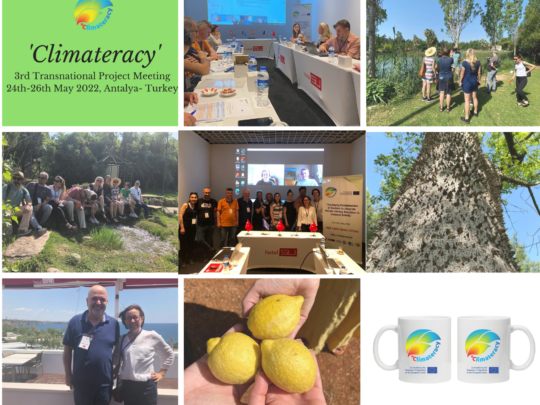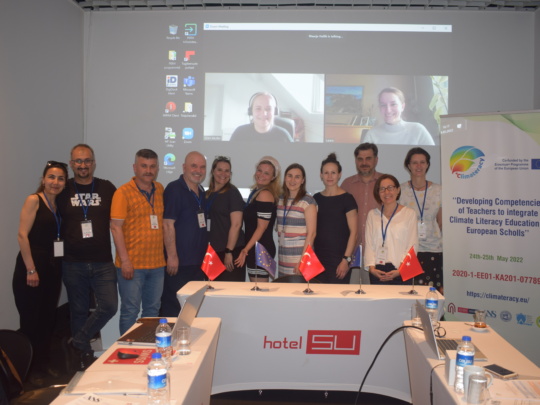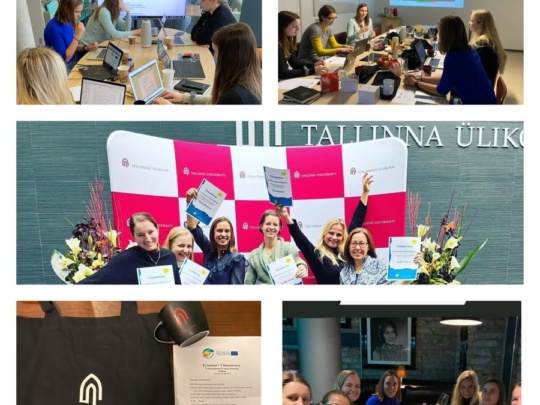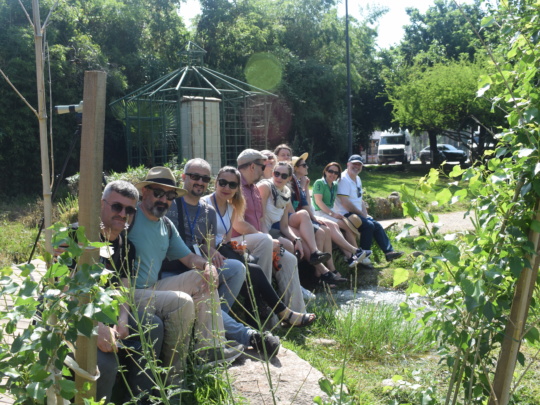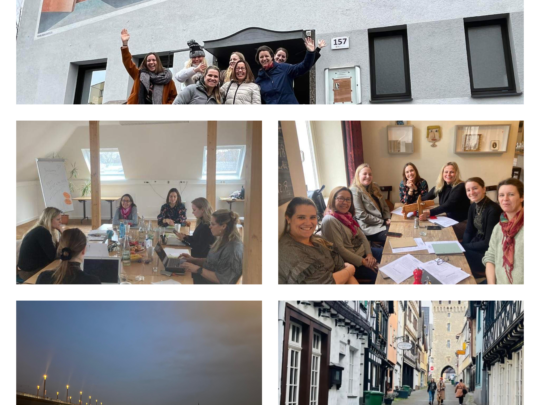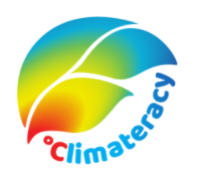
Developing Competencies of Teachers to integrate Climate Literacy Education in European Schools
2020-1-EE01-KA201-077890
Start Date:30-12-2020
End Date: 29-12-2022
Total Budget:257.968 EUR
Coordinator:
TALLINN UNIVERSITY, ESTONIA
Partners:
UC LIMBURG UNIVERSITY, BELGIUM
PAYDAŞ EĞİTİM KÜLTÜR VE SANAT DERNEĞİ, TURKEY
ANS Egitim Hizmetleri Yonetim Danismanligi Limited Sirketi, TURKEY
GOETEBORGS UNIVERSITY, SWEDEN
WISSENSCHAFTSLADEN BONN EV, GERMANY
Climate change is one of the biggest challenges facing mankind in our time. Over the 21st century, climate scientists expect Earth’s temperature to continue increasing, very likely more than it did during the 20th century. This will affect almost every aspect of human society, including economic prosperity, human and environmental health, and national security. It’s up to all of us to build that new sustainable society. So, it’s mandatory that we start by making people aware of how their actions impact the Earth. We must fully understand what our footprint really is. Only then we can start doing things differently and create a Climate Literate Society.
Education is an essential element of the global response to climate change. It helps people understand and address the impact of global warming, increases “climate literacy” among young people, encourages changes in their attitudes and behavior, and helps them adapt to climate change related trends. Although the role of education in addressing the challenges of climate change is increasingly recognized, the curriculum and teaching in schools still is far from being effective in equipping young generations with strategies to deal with the climate change challenges of today and the future. The project aims at enhancing teachers’ profiles to coach students effectively in European Secondary schools to raise the level of climate literacy by developing:
- Educational Content for Climate Literacy
- Open Online Course to allow teachers to promote climate literacy at schools
- Online Teacher Community
We will develop, implement, disseminate and evaluate three central intellectual outputs in order to reach our target beneficiaries and achieve our objectives. The partnership is set up between six different organizations including three universities-Estonia, Sweden, Belgium, two NGOs-Germany and Turkey and one private company from Turkey in a cross sectoral way.

